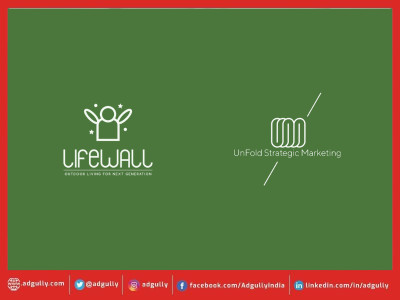Amid WFH, conventional businesses are now seeing merit in co-working
With lockdowns and curfews being imposed in several parts of the country due to the rise in the number of COVID-19 cases, most of corporate India has returned to working from home. How to get llc In the long period of WFH mode, quite a few offices have let go of their physical premises and taken their business operations complete online
However, the country can’t be under perpetual lockdown and sooner or later, it will be business as near usual. One overhead that several organisations may not have in their future set of considerations could be a physical office space. But there are times when the need for a physical place for meetings or conducting business arises, and here come in the Co-working spaces. Though most an urban phenomenon so far, in the new normal, this concept could nicely fit in smaller cities as well.
Also read: Rahul Subramanian is all of us during ‘WFH’ - WeWork’s new campaign
The term Business Operations have become borderless post the pandemic. The pace and acceleration in the adoption of moving the entire business operation online was definitely a challenging feat, both from the mindset as well as an execution standpoint. While work from home model would have worked well in the lockdown, many companies however may not want it as a culture and many business verticals and functions still require employees to work in an office setting.
Speaking about co-existence of work from home and working from office, Manas Mehrotra, Founder, 315Work Avenue said, “Work from home may co-exist, but office space will not lose its importance. Medium-to-long-term fundamentals remain sound as corporate occupiers seek out alternative options to reduce costs and capital expenditure. As a result, even the most conventional occupiers are now seeing merit in coworking. There’s now a lot more interest now in taking dedicated and secure private offices, which is the big shift in the flexible office space industry. We have seen multiple new sign ups very recently from large enterprises, MNCs and corporates and we expect more signs-ups going forward. Around 40% of our clients have returned to work and the rest of them have retained the office and are expected to return in a couple of months.”
Businesses have shifted to digital and pandemic has forced companies to adopt new and innovative ways of staying afloat and operational as they ask their employees to work from home.
Manika Juneja, VP – Operation, WATConsult said, “The future of Business Operations can be summed up in one word: Automation. Digital transformation of any industry, including advertising, requires lesser manual intervention & faster technological advances. Here at WATConsult, we’re already a step ahead with our highly automated internal processes as well as newer services that we are offering to our clients. Additionally, the hybrid working model will take care of the online-offline collaboration efficiently. All of this will work together to positively impact the productivity of business operations.”
There has definitely been an impact of Work From Home on coworking segment of the business and there is a decrease in overall number of people using a coworking space compared to pre COVID.As companies look to resume business, redesigning and restructuring of existing real estate will pose yet another challenge, however coworking spaces will be able to respond to design changes required post-COVID-19 quicker and more efficiently than traditional office spaces.
Meghna Agarwal, Co Founder, IndiQube said, “Pre COVD-19, the business was growing at a rapid pace, we were on track to clock an annualized revenue of Rs.400 Crores in FY 19-20 and our commune occupancy was over 90%. Starting Feb’20, we have seen our clients encouraging their employees to Work From Home owing to the pandemic and this trend gathered steam post the announcement of lockdown in Mar’20. During the period of Q1-Q2 (Apr-Sep), we have seen a lot of uncertainty in the market and majority of our coworking tenants have embraced WFH and moved out of our office spaces. However, our Enterprise clients, which mostly include IT, MNCs, ODCs & late-stage startups, have persisted with us. Traditionally, IndiQube had an enterprise specific approach owing to which 85% of our clientele were enterprises and only about 15% were from coworking. This enterprise focus has ensured that the impact of client attrition during this phase was moderate and our overall business saw a drop between 10-15%. Starting Oct’20, we have seen clients coming back to our spaces in a phased manner. In Q3, compared to Q2, we have seen a 50% increase in enquiries originating from large enterprises primarily due to the need of workspace rationalization. We have observed that companies are looking at distributed offices in the same city and are also exploring options in tier II cities. In the post COVID era, enterprises will be more cautious about their commercial real estate costs and would prefer flexible workspaces that minimize their exposure to high capex & long term leases.


















Share
Facebook
YouTube
Tweet
Twitter
LinkedIn